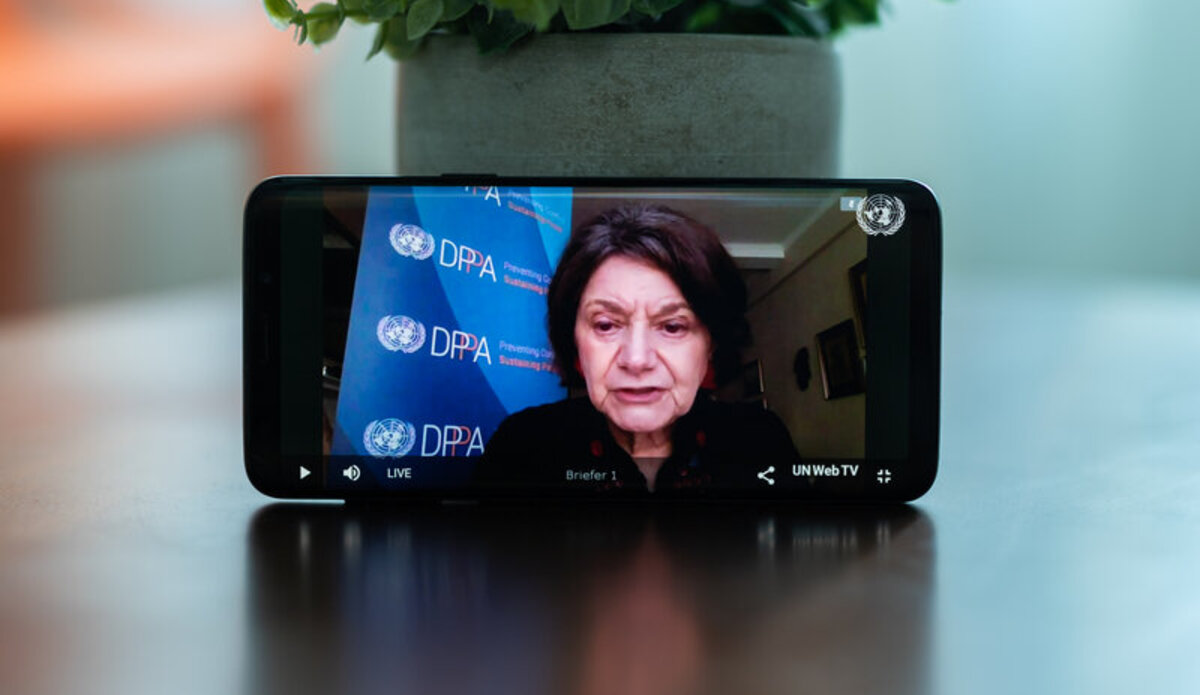Briefing to the Security Council on Peace and Security in Africa, Under-Secretary-General for Political and Peacebuilding Affairs Rosemary A. DiCarlo
Thank you, Mr. President.
The Blue Nile, which contributes approximately 85 per cent of the main Nile volume when it merges with the White Nile in Khartoum, is an important transboundary water resource, critical for the livelihoods and development of the people of the Arab Republic of Egypt, the Federal Democratic Republic of Ethiopia and the Republic of the Sudan.
The construction of the Grand Ethiopian Renaissance Dam (GERD), a major hydropower project located on the Blue Nile in Ethiopia’s Benishangul-Gumuz region, began in April 2011. Through the generation of hydroelectricity, the GERD will significantly boost Ethiopia’s energy sources, allowing it to increase electrification, accelerate industrialization, and export excess electricity to the region.
Recognizing the need for cooperation on the GERD to fully realise its benefits and mitigate potential negative effects on the downstream countries, the Blue Nile riparian countries have undertaken several commendable initiatives over the past decade. These include the establishment of an International Panel of Experts in 2012 to examine the design and construction plans of the GERD; a follow-up Tripartite National Committee in 2014; and the 2015 Declaration of Principles on the GERD.
The Declaration takes note of the rising demand on the transboundary water resources of Egypt, Ethiopia and Sudan. The three countries committed to several principles, including cooperation, equitable and reasonable utilization, security, and the peaceful settlement of disputes.
In 2018, the three countries formed a National Independent Research Study Group, which was to discuss the filling and operation of the GERD. Trilateral discussions at the Ministerial level, as well as among the Heads of State and have been assisted by the United States and the World Bank since 2019. A draft text was discussed, but the three riparian states were not able to reach agreement on the text presented in February 2020.
Sudan, therefore, under the leadership of Prime Minister Dr Abdullah Hamdok, took the initiative earlier this month, to seek to narrow the differences on this issue. We understand that 90 per cent of the technical issues have already been settled.
Following the inconclusive negotiations in February, the three countries agreed to appoint observers to the talks, including the Republic of South Africa, the United States and the European Union. Their representatives have been observers to the recent meetings.
On 26 June, South Africa as Chair of the African Union, convened the Bureau of the African Union Heads of State. President Sisi, Prime Minister Abiy and Prime Minister Hamdok attended the session and agreed to an AU-led process aimed to resolve outstanding issues. The parties will meet over the next two weeks for this purpose.
I commend the parties for their determination to negotiate an agreement and applaud the African Union’s efforts to facilitate a process to this end. The remaining differences are technical and legal in nature. They include the binding nature of an agreement, the dispute resolution mechanism and the management of water flow during droughts.
Mr. President,
While the United Nations has not participated in the negotiations on the GERD, the Secretary-General is fully seized of this matter. I reiterate the Secretary-General’s statement of 19 May urging the parties to peacefully resolve all outstanding differences.
These differences can be overcome, and an agreement can be reached, should all the parties show the necessary political will to compromise in line with the spirit of cooperation highlighted in the 2015 Declaration of Principles.
The United Nations stands ready to assist, through technical and expert support, as appropriate and as requested by the three countries. This includes any support that may be required by the AU-led process.
Transboundary water cooperation is a key element in the implementation of the Sustainable Development Goals. I would like to emphasize that climate change, combined with projected demographic growth and socio-economic changes, will increase water management challenges worldwide, not only for Blue Nile riparian countries.
Mr. President,
Cooperation is not a zero-sum game. It is the key to a successful collective effort to reduce poverty and increase growth, thus delivering on the development potential of the region. We firmly hope that Egypt, Ethiopia and Sudan will persevere with efforts to achieve an agreement on the GERD that is beneficial to all.
Thank you, Mr. President.

